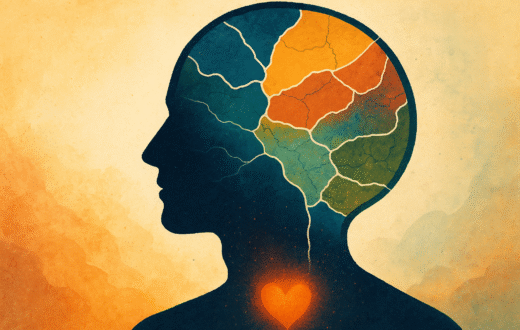Why ADHD Feels Like Emotional Flooding – Not Just Simple Anger

Living with ADHD often feels like being caught in a constant storm of responsibilities, thoughts, and emotions. Rather than being a straightforward issue of distraction or forgetfulness, ADHD creates a mental environment where multiple tasks compete for attention, each with its emotional consequence if neglected. The result? Not just frustration or anger, but a full-blown sense of emotional flooding.
A Real-Life Scenario
Take Peter, for example. He has a work report due by the end of the week – something he’s been putting off. That alone causes stress. On top of that, the check engine light in his car has been on for two weeks, which he’s also ignored. Then there’s a parent-teacher conference at his daughter’s school scheduled the same day the report is due – a moment he knows is important, especially since he’s co-parenting after a divorce. To make things worse, his boss has just assigned him a new project under the assumption that the first one is finished. Peter hasn’t even started it, and he’s terrified to admit this.
Each of these situations may seem manageable in isolation. But for someone with ADHD, the inability to sort through, prioritize, and manage emotional responses can lead to intense emotional overload. This is emotional flooding – when every stressor feels urgent and equally heavy, creating a tidal wave of overwhelm.
The Neuroscience Behind Emotional Flooding
What causes this mental overload in ADHD? At its core, two brain areas play major roles: the prefrontal cortex and the amygdala.
The prefrontal cortex is responsible for executive functions like planning, emotional regulation, impulse control, and working memory. In individuals with ADHD, this part of the brain tends to function less efficiently. This results in impulsivity, poor emotional control, trouble with memory, and difficulty managing tasks over time – all of which make emotional flooding more likely when stress builds up.
Then there’s the amygdala, the brain’s emotional alarm system. In ADHD, the amygdala can become hyperactive, reacting strongly even to small stressors. People with ADHD may also experience rejection sensitivity, making them even more vulnerable to perceived failure or criticism.
When the brain’s emotional regulation systems are overworked and underdeveloped, stress responses escalate quickly, often turning a small issue into a full-blown emotional crisis.
Rewiring the Brain Is Possible
The hopeful news? The brain is not fixed in its ways. With intentional effort, it is possible to rewire ADHD brains toward greater focus, emotional regulation, and task management. This includes learning new habits, adopting emotional regulation techniques, and shifting limiting beliefs about one’s capabilities.
From my experience working with clients who have ADHD, I’ve seen firsthand how consistent practice in organization and mindfulness leads not only to better productivity but also to a more balanced emotional life. As focus and clarity improve, so does emotional resilience. With the right support and willingness to grow, calm can return even after years of internal chaos.




